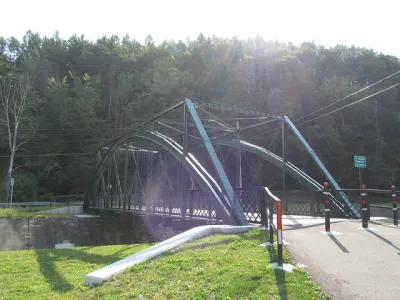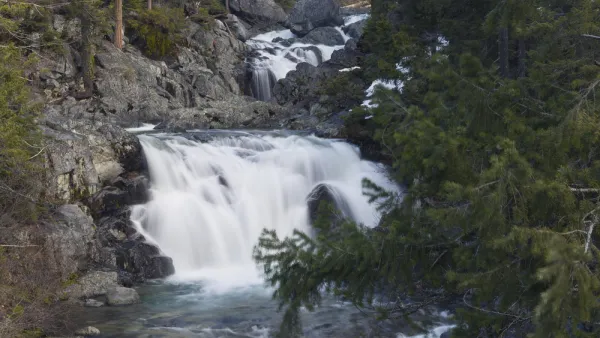Opponents cite environmental risks, supporters hope the facility will boost the economy of a struggling community.

In a sprawling column for the Pittsburg Post-Gazette, Don Hopey reports on the political, cultural and environmental issues surrounding a private company's proposed facility to treat wastewater from fracking operations at an existing sewage treatment plant along the Allegheny River.
"The proposal, which the state Department of Environmental Protection is considering permitting, would allow Epiphany to accept and store truckloads of wastewater — up to 400,000 gallons a day — from shale gas drillers. That water would be injected into a natural gas heated-evaporation and distillation boiler where salts and other chemical contaminants would be removed. Up to 42,000 gallons a day of the remaining water would be piped through the municipal sewage treatment plant, then discharged into the Allegheny River."
Those with serious questions about the project include a typical assortment of conservation organizations, as well as a notable number of government entities including the Pennsylvania Fish & Boat Commission, the New York State DEP, the U.S. Army Corps of Engineers and the U.S. Fish & Wildlife Service.
It's also strongly opposed by the Seneca Nation, whose members have not forgotten the events preceding the construction of the Kinzua Dam, nor have they forgotten that in 1974 their land was "inundated by radioactive waste" from a processing site in West Valley, New York.
Supporters say the fracking operations need somewhere to put wastewater, Hopey writes, and "also note that a more robust drilling presence could help fill the economic hole created when Coudersport-based Adelphia Communications Corp., then the fifth-largest cable company in the U.S., went bankrupt in 2002."
Conflict between the environmental risks and potential economic benefits of fracking have been at the center of the debate across the country. New York State banned fracking, only to have one of its more economically depressed regions threaten to secede.
And though the EPA has determined that fracking can threaten drinking water, it's unlikely the agency will do much about it under the Trump Administration
FULL STORY: At Allegheny River's headwaters, treatment plant for fracking wastewater stirs debate

National Parks Layoffs Will Cause Communities to Lose Billions
Thousands of essential park workers were laid off this week, just before the busy spring break season.

Retro-silient?: America’s First “Eco-burb,” The Woodlands Turns 50
A master-planned community north of Houston offers lessons on green infrastructure and resilient design, but falls short of its founder’s lofty affordability and walkability goals.

Delivering for America Plan Will Downgrade Mail Service in at Least 49.5 Percent of Zip Codes
Republican and Democrat lawmakers criticize the plan for its disproportionate negative impact on rural communities.

Test News Post 1
This is a summary

Test News Headline 46
Test for the image on the front page.

Balancing Bombs and Butterflies: How the National Guard Protects a Rare Species
The National Guard at Fort Indiantown Gap uses GIS technology and land management strategies to balance military training with conservation efforts, ensuring the survival of the rare eastern regal fritillary butterfly.
Urban Design for Planners 1: Software Tools
This six-course series explores essential urban design concepts using open source software and equips planners with the tools they need to participate fully in the urban design process.
Planning for Universal Design
Learn the tools for implementing Universal Design in planning regulations.
EMC Planning Group, Inc.
Planetizen
Planetizen
Mpact (formerly Rail~Volution)
Great Falls Development Authority, Inc.
HUDs Office of Policy Development and Research
NYU Wagner Graduate School of Public Service




























